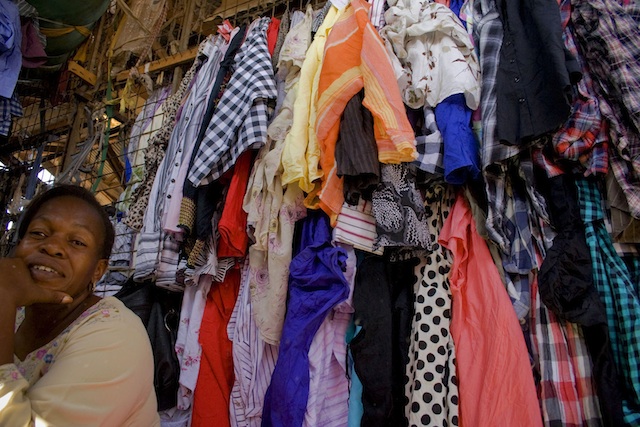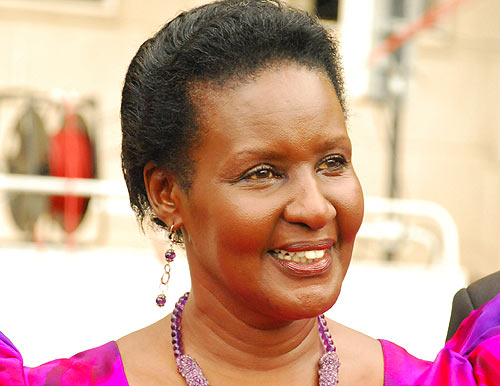Uganda’s Minister of Trade, Industry and Cooperatives, Amelia Kyambadde has said Ugandans and East Africans at large can now afford to buy new clothing, compared to the past decades when they preferred secondhand clothes due to poverty.
“East Africans want a new life. People are able to afford to buy new things,” Kyambadde said, adding that “the demand is now for new clothing.”

The minister’s statement came days ago as senior officials from Rwanda, Tanzania and Uganda argued in Washington that their collective phase-out of used clothing imports should not result in any loss of benefits from a US preferential trade programme – the African Growth and Opportunity Act (Agoa).
Minister Kyambadde said the development of local apparel manufacturing would create jobs along a value chain in the form of cotton growing, ginning, weaving, garment manufacturing and other forms of retail business.
Uganda, Tanzania and Rwanda are opposing an effort by a US business association to restrict their eligibility for Agoa. The Secondary Materials and Recycled Textiles Association (Smart) filed a petition with US trade authorities in March urging that the three countries, along with fellow EAC member Kenya, be deemed ineligible for Agoa’s allowance of duty-free textile and apparel exports to the US market.
Lawrence Bogard, an attorney representing Smart, warned at the recent US government inquiry that the association’s member companies would suffer major losses in jobs and revenues if the EAC bans the importation of used-clothing.
Kenya would have far more to lose from suspension of its duty-free textile export privileges under Agoa than would any of the other EAC countries. The country sold USD 394 million worth of textiles and clothing on the US market last year, compared to the total USD43 million sum of Agoa trade for Rwanda, Tanzania and Uganda.
The opposing parties presented their comments to a panel of representatives of six US government agencies: the departments of Commerce, Labour, Treasury and State, as well as the US Agency for International Development and the Office of the US Trade Representative.
The US president Donald Trump has vowed to oppose any trade initiative that he deems injurious to American interests. And Smart seeks to depict the EAC ban on used-clothing imports as a threat to thousands of US jobs.
Tanzania’s and Uganda have doubled levies on used-clothing imports — from $0.20 to $0.40 per kilogramme, while Rwanda has increased levies to USD2.5 from USD0.20. These increases, the US secondhand clothing exporters say, go against the rules of the World Trade Organisation.
EAC countries’ countries dispute Smart’s contention that the used-clothing action violates two of Agoa’s eligibility criteria.
The 17-year-old programme requires participant countries to have achieved “elimination of barriers to US trade” or be making progress in that direction. Agoa also stipulates that benefit-recipient countries should be moving toward a “market-based economy.”
The EAC countries decided to adopt the used clothing import phase-out as a means of encouraging development of their own textile manufacturing sectors, said Uganda Trade Minister Amelia Kyambadde, who spoke in her capacity as chair of the EAC’s Council of Ministers.
“Industrialisation is a strategic pillar of EAC integration,” Ms Kyambadde said, adding that the heads of state decided that textiles and footwear manufacturing is a priority as growth of those sectors would create many more jobs in East Africa than will be lost through the shutdown of local businesses involved in the used-clothing trade.







